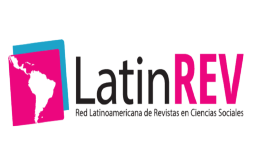Globalization and regionalization: ¿Fractured by pandemia?
DOI:
https://doi.org/10.52906/ind.v1i2.16Keywords:
Globalization, regionalization, neoliberalism, pandemica, COVID 19Abstract
The COVID19 pandemic brought serious economic, political, cultural and social costs that aggravated pre-existing inequalities, evidencing the need for multilateral actions, precisely because neoliberal formulas exhibited their failure with the deficiencies of the health systems, housing conditions, educational systems, pensions, loss of jobs, income and life chances after “social distancing”. Adding up the dynamics of technological change, we will experience other mutations: an eventual relative deglobalization, settling the shift from the Atlantic to the Pacific, with China as a rising power. And a deep global regionalization, in two ways: one, the emphasis on national responses to the pandemic (which can affect food production, industries such as pharmaceuticals, materials for the health sector, but also telecommunications, energy and utilities); two, due to the eventual relocation of global industrial supply chains in anticipation of major disruptions due to the pandemic, for reasons of national security or for environmental reasons. Regionalization, led by large technology companies, will not be fully global because they operate with different standards and regulations, data rights regimes, tensions between individual rights and incentives for innovation, international discrepancies.
Downloads
References
Alvarez Béjar, A. (2020ª). Pandemia y crisis mundial. Texto para videoconferencia del CACEPS, FE-UNAM, 26 de agosto. Primera versión de algunas de las ideas aquí planteadas.
Alvarez Béjar, A. (2018). Cómo el neoliberalismo enjauló a México (El contexto de los siglos XX y XXI y la alternativa de un ecosocialismo democrático). UNAM-Facultad de Economía, México.
Alvarez Béjar, A. (2019a). La gran transición del capitalismo contemporáneo y las vulnerabilidades actuales de América Latina y México. Ponencia al III Encuentro SEPLA-México, UAM-A, 6-8 de noviembre de 2019.
Alvarez Béjar, A. (2019b). Reflexiones en torno al T-MEC y el retorno de la incertidumbre global. Ponencia del VI Encuentro de la Red de
Estudios de América del Norte, UAM-X, septiembre de 2019.
Alvarez Béjar, A. (2020b). La Rebelión de 2020 en EU. Un recuento desde México. Revista del Sindicato de Telefonistas, núm.2, en prensa,
México.
International Monetary Fund. (June, 2020). World Economic Outlook Update. WEOENG202006pdf. USA.
Khüen, L. (2018). Platform capitalism. Canada.
Mazzucato, M. y Torreele, E. (April, 27, 2020). How to develop a COVID 19 Vaccine for All, en Project Syndicate.
Medhora Rohinton, P. y Owen Taylor. A Post COVID19 Digital Bretton Woods. ibidem, pp.3-4
Moreno, A. (19/07/2019). Politizar las TIC, las líneas del futuro en salud están mapeadas. ALAInet, América Latina en Movimiento.
Roubini, N. (April 28, 2020). Ten ominous and risky trends announce a Greater Depression, in Project Syndicate, USA.
Sanders, B. (25/08/2020). More droughts, more famine, more floods, more ocean acidification, more extreme weather disturbances, more disease, and more human suffering, en info@berniesanders.com.
Schwab, K. and Malleret, T. (2020). COVID19. The great reset forum publishing. Pdf. Global Social Forum.
The Guardian. https://www.theguardian.com/societty/2019/jul/10/nhs-teams-up-with-amazon-to-bring-alexa-to-patients/
Downloads
Published
How to Cite
License
Autoría Anónima
- Los envíos no deben aparecer en ninguna página web o cualquier otro sitio visible para evitar que afecte a la revisión por pares. Si su artículo aparece en alguna web, por favor, retírelo antes de subir su envío.
- Los envíos iniciales deben omitir cualquier tipo de información que permita la identificación del autor/es para garantizar la revisión ciega por pares.














